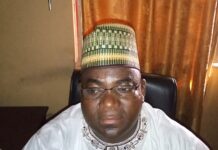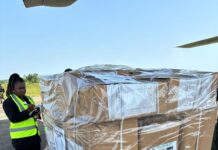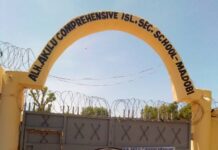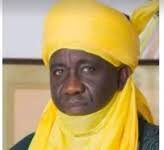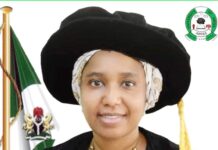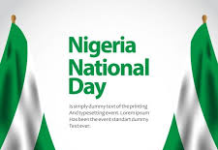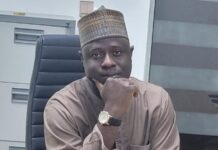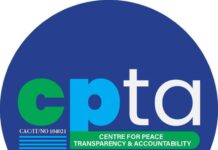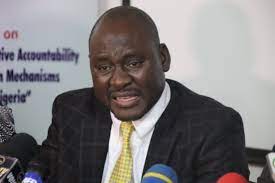
CSOs Task Tinubu On Reviving Anti-Corruption Fight
POLITICS DIGEST – A group of 30 Civil Society Organizations, CSOs, with a focus on combating corruption in Nigeria has called on President Bola Tinubu to rejuvenate the fight against corruption in the country.
Speaking on behalf of the group during a press conference in Abuja, the Executive Director of the Civil Society Legislative Advocacy Centre, CISLAC, Comrade Auwal Musa Rafsanjani, rated the performance of the previous administration on anti-corruption very low.
According to him, corruption is believed to have worsened during the administration of former President Muhammadu Buhari.
Mr Rafsanjani added that challenges such as lack of political will, weak governance, and low public engagement hinder the effectiveness of existing anti-corruption initiatives like the National Anti-Corruption Strategy.
Rafsanjani highlighted the mixed opinions on the success of the Buhari administration’s anti-corruption efforts, despite the implementation of legal frameworks and initiatives.
Corruption is believed to have worsened, and the new administration led by President Tinubu lacks a clear focus on anti-corruption.
Rafsanjani pointed out various factors contributing to corruption, including the low reporting of corrupt practices due to citizen mistrust, the absence of whistleblower and witness protection laws, underfunding of anti-graft agencies, and non-compliance with laws.
The group made recommendations to address these issues, such as passing the Whistle-blower and Witness Protection Bill into law and fully implementing the National Strategy on Anti-Corruption and the Freedom of Information Act across all states.
They also called for capacity building for public institution staff, effective monitoring of beneficial ownership registers, and the implementation of relevant acts like the Proceeds of Crime Act and the Money Laundering and Prohibition Act.
Read Also:
Rafsanjani urged for improved funding for the Independent Corrupt Practices and Other Related Offenses Commission (ICPC) and the Code of Conduct Bureau, as well as a review of the appointment provisions for the ICPC, Economic and Financial Crimes Commission (EFCC), and Code of Conduct Bureau.
He emphasized that these actions would increase the number of convictions of politically exposed persons (PEPs) by the EFCC and ICPC. Additionally, the group called for the investigation of public officers implicated in various international scandals.
Rafsanjani highlighted the need to reform financial institutions prone to money laundering, including the Central Bank of Nigeria (CBN), commercial banks, the Federal Inland Revenue Service (FIRS), the Nigerian Ports Authority, and the maritime sector.
He emphasized the importance of ensuring judicial independence by providing real financial autonomy to the judiciary, which currently depends on delayed disbursements by the executive.
The group demanded greater transparency in the budgeting and expenditures of anti-corruption and security agencies and urged the government to prioritize the provision of information and data in the oil and gas sector.
Furthermore, Rafsanjani called for the alignment of state governments with federal-level anti-corruption strategies and initiatives.
He stressed the need to strengthen the autonomy, independence, and institutional capacity of state-level anti-corruption agencies while fostering better synergy with their federal counterparts.
The group emphasized the importance of respecting civil society organizations (CSOs) and citizens’ freedom of expression without fear of intimidation or harassment. They urged the government to view the role of CSOs as complementary rather than antagonistic.
The group also proposed the creation of a separate legal procedure to monitor genuinely confidential procurements in the defense sector by a confidential Senate Committee.
Additionally, they recommended that the National Assembly expedite the review process of the outdated current audit act to empower the Office of the Auditor-General of the Federation in fulfilling its duties





